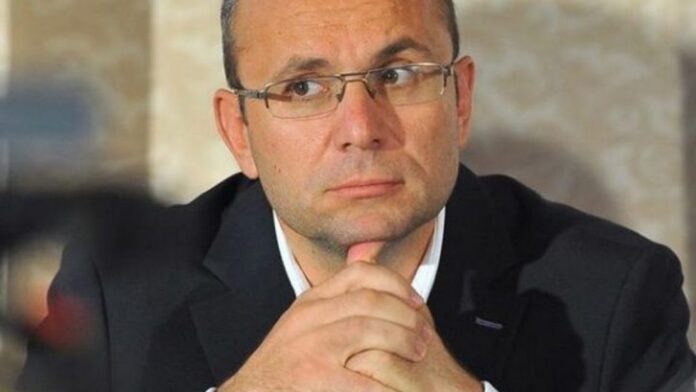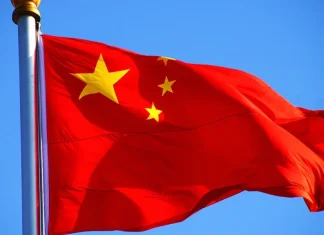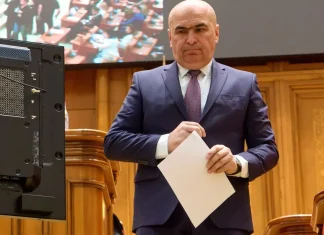Author: Cozmin Gușă
Yesterday, I posted only a short note about the great Alaska meeting, based on what could be seen and confirmed after the “summit of the century.” I said this:
“In Alaska, it went just as predicted. Ukraine’s fate remains in Russia’s hands. Putin is re-legitimized in the international diplomatic sphere. Trump (for now) places the EU in tow behind the U.S. and awaits his Nobel Peace Prize. The geopolitical pincer, represented at this moment by Russia and China, will continue to implement the framework of the New World Order. In two weeks, the Putin–Xi Jinping meeting will take place in Beijing. There’s a chance Trump will also be invited. ‘Goodbye Zelensky!’ and ‘Moscow doesn’t believe in tears’… of the crocodile variety. The rest of the conclusions will come once more details of the Alaska discussions are made public.”
Today we know the meeting lasted only three hours instead of the scheduled six, as had been agreed with the Russian side. The lunch between Putin and Trump was canceled. You should know that any round of negotiations is obligatorily followed, after the lunch break, by a round of conclusions. Their absence tells us negotiations face-to-face between Putin and Trump were canceled.
The talks remained at the level settled beforehand by the special negotiating teams, prior to the Alaska summit. To me, it is clear the two leaders, Putin and Trump, focused only on agreeing on the next steps and future meetings, which will not actually target Ukraine but will be used as a pretext. The meetings will actually focus on bringing Xi Jinping and China into the meeting format, later also India, perhaps Brazil, while the EU, which despite being the noisiest geopolitical actor is lacking serious leverage, will be called only at the end, merely to take note of how global influence is to be redistributed.
It also seems obvious to me that Putin and Trump divided responsibilities for shaping the negotiation formats. Putin will go to Xi Jinping in China in less than two weeks, then has already scheduled an official visit to India at the beginning of autumn. Trump, meanwhile, has the simpler task: sweet-talking the European leaders, whom—half joking, half serious—he invited, along with Zelensky, to Washington tomorrow if they wish to come.
You may wonder: if the EU has become so irrelevant today, why would the U.S. still bother engaging with European leaders? I gave the answer in recent weeks, when I showed with arguments that the EU has become the new USSR, with all the old diseases of the communist bloc. But the EU is actually controlled by Western Big Finance (generically described as the Rothschild family). This Big Finance must be calmed and carefully manipulated, for the simple reason that it still dominates the mega-financial flows on which even the U.S. vitally depends. Already, there have been two episodes in which their flagship company, BlackRock, was excluded from global deals worth trillions. First, in Ukraine’s reconstruction, where Putin and Xi refuse to hear of BlackRock and the Rothschilds, whom they consider responsible for starting the Ukrainian war. Second, in the acquisition of the Panama Canal, where Xi successfully opposed a Chinese-American transferring management to BlackRock, despite Trump, under pressure and blackmail, having announced it with fanfare. Thus, the secret motto from Anchorage, assumed by Putin and Trump regarding Big Finance, can be summed up as: “Careful with the piano on the stairs.”
The redivision of influence in Europe—soon to be decided in the Putin–Xi–Trump triangle—will reflect the strategic interests of the three great powers, grounded in geopolitical and geo-economic reality. Putin will start from extended control of the Black Sea by Russia, which will clearly include Ukraine, and also Romania and Moldova. We already know Hungary and Slovakia have volunteered themselves to re-enter Moscow’s old sphere of influence. Xi Jinping has explicit geo-economic expansion interests in Europe: Ukraine’s agricultural potential paired with guaranteed Black Sea access, plus interest in smaller states like Serbia and others, alongside firm bilateral ties with Germany, Italy, and France. Trump is interested in the Scandinavian–Baltic area, with Greenland as a bonus; clearly also the Netherlands and the UK. But for all three, the zones of Greece and the Iberian Peninsula (Spain and Portugal) remain in dispute.
Even just based on this brief sketch I’ve given you today—without even touching Asia, Africa, the Middle East, or South America—you can imagine how sophisticated the procedure for implementing the New World Order has become. A procedure well masked by the sound-and-light show you watched in Alaska. So we will all be spectators, from the stands, of at least a two-year tour by the geopolitical troupe fronted by its three soloists: Putin, Xi Jinping, and Trump. In better times, we used to delight in the trio of Luciano Pavarotti, Plácido Domingo, and José Carreras.











